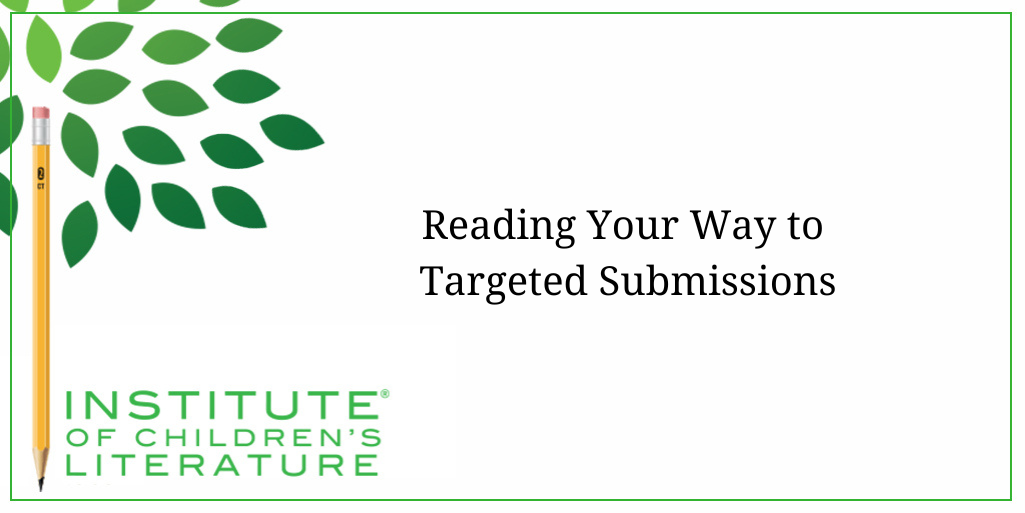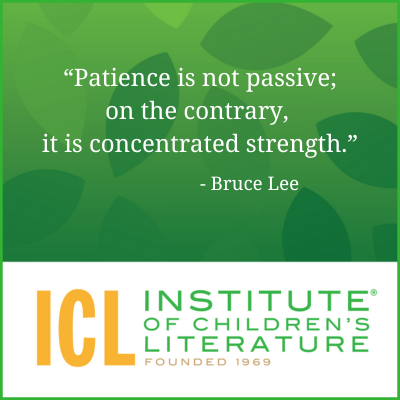
5 Ways Writers Can Prep for 2025 Goal Setting
Before we roll on to the new writing year, let’s harness our optimism for the blank slate before us and prepare for our 2025 Goal Setting just for writers.
Beginning Tuesday, July 22, 2025 at 10 PM CT through Wednesday, July 23, 2025 at 4 AM CT, we will be performing scheduled maintenance to update our website.

One of the pieces of advice writers are given most often is to read lots and lots of books. While most of the time this advice is meant as a way of improving your writing, today we’re going to discuss how reading books in your genre can help you develop targeted submissions for publishers who are a good fit for your work.
The suggestion to read, read, read can be discouraging for writers who struggle with reading, who read slowly, or who just don’t have much time to read. This is where audiobooks can save the day.

Audiobooks can be “read” when doing housework, driving to work, running errands, working out, or waiting in doctors’ offices. Because the words are spoken into your ear, you don’t have to have your hands free, which can open pockets of reading time in your day.
Right now, audiobooks are experiencing a boom time. Audiobook sales are doing great, so tuning your ear to recognize what makes a good story when read aloud is certainly not a “second best” method of reading. But whether you read on the page or listen to a book read aloud, consuming published books is an important part of becoming a better writer. It’s also an important part of targeted marketing.
Nothing teaches you what a publisher publishes or what an agent loves better than reading the books in a publisher’s line or the books an agent has championed. These days, social media makes it easier than ever to know what books an agent has represented, because many will tweet about books coming out by their writers. After all, increasing sales of writer’s books increases the income of the agent as well, so agents are definitely posting about books on social media. Also, knowing what books a publisher has in their new season is also easy since most have catalogs online.
When you’re reading (or listening to) books a publisher has published, it’s tempting to look for the flaws so you can think of all the ways your book is better. This might totally be true, but it’s not going to help you with your targeted submissions. Instead, look for what made the publisher want this book enough to invest a great deal of money in it. What made them care about the book? What made them believe it would be successful? Is there anything about this book that can tell you what editors and agents are interested in right now?

For example, the topic might be a retelling of a moment in history, but the focus will be something the writer intended readers to gain from the story. As you read more and more catalogs, you’ll soon see that many narrative nonfiction books in trade publishing have social justice or environmental themes/slants/focus. This can help you look at your own narrative nonfiction manuscript with an eye toward what the story you’re telling shows, and what themes it reveals. Not only will that help you decide which publishers would be interested; it will help you describe your book to the publisher in a way that highlights the things that the publisher will find alluring.
In fiction, you’ll see contemporary fiction as a genre has more than caught up with some of the most popular genres like scary stories, fantasy stories, or historical fiction. You’ll also see many examples of stories that take place in specific cultural or societal groups, told by members of the group. That doesn’t mean the story might not include other genre elements. For example, a story with an autistic main character that is written by an autistic writer might also be a science fiction story or a historical fiction novel. Each book you study will reveal more than one thing that played a part in helping the publisher (and the agent who championed the book to the publisher) decide to make this book happen.
It is important to keep your goal in mind when you are reading many books put out by publishers that interest you or that were represented by agents you’re considering. You aren’t trying to decide what to write. You aren’t even trying to decide what popular trend you might revise your book to match.
Instead, you’re looking for publishers and agents who are already showing an interest in the themes, age ranges, genres, etc. that you prefer. Then when it comes time to submit, you know which publisher or agent is a good match for what you do. And you’ll know why the person is a good match. That means you can describe your project with words that appeal to that person or company.
That doesn’t mean that some of what you learn won’t be carried into a revision. You might, for instance, notice that the publisher that seems the best match for your age group, format, type of character, and genre seems to have chapter titles in many of the books. That means you should think about adding chapter titles to your manuscript. If you see that the publisher flatly doesn’t exceed a certain word count in books of your genre, then you should probably be sure your book falls within the accepted word count, even if that means another revision pass to trim out some word count. The more your book is like what they publish, while being uniquely yours, the better chance you have to make a connection with that publisher or that agent.
So, keep in mind that the writer’s adage about reading, reading, reading can clue you in about more than ways to improve your craft (though it certainly can do that). It can also play a part in successful targeted submissions since the more you know, the better your chances of making the connections you want.
With over 100 books in publication, Jan Fields writes both chapter books for children and mystery novels for adults. She’s also known for a variety of experiences teaching writing, from one session SCBWI events to lengthier Highlights Foundation workshops to these blog posts for the Institute of Children’s Literature. As a former ICL instructor, Jan enjoys equipping writers for success in whatever way she can.

Before we roll on to the new writing year, let’s harness our optimism for the blank slate before us and prepare for our 2025 Goal Setting just for writers.

Writers can be thin-skinned when it comes to getting feedback on their work. Let’s look at 4 ways to positively deal with constructive criticism!

Rejection is part of the territory when it comes to being a writer. Today we offer reflection for writers to help redirect your efforts after a rejection.
1000 N. West Street #1200, Wilmington, DE 19801
© 2024 Direct Learning Systems, Inc. All rights reserved.
1000 N. West Street #1200, Wilmington, DE 19801
© 2024 Direct Learning Systems, Inc. All rights reserved.
1000 N. West Street #1200, Wilmington, DE 19801
© 2024 Direct Learning Systems, Inc. All rights reserved.
1000 N. West Street #1200, Wilmington, DE 19801
© 2025 Direct Learning Systems, Inc. All rights reserved.
1000 N. West Street #1200, Wilmington, DE 19801
©2025 Direct Learning Systems, Inc. All rights reserved. Privacy Policy.
6 Comments